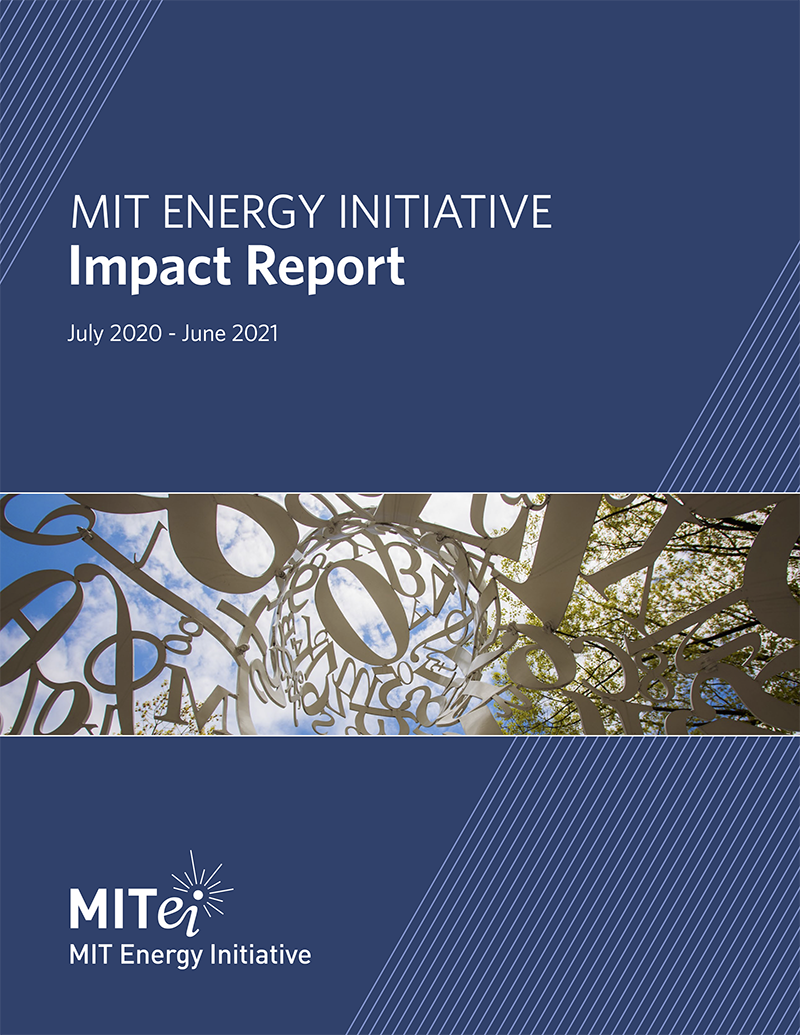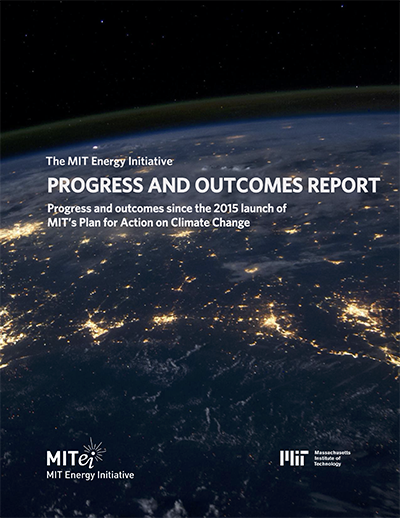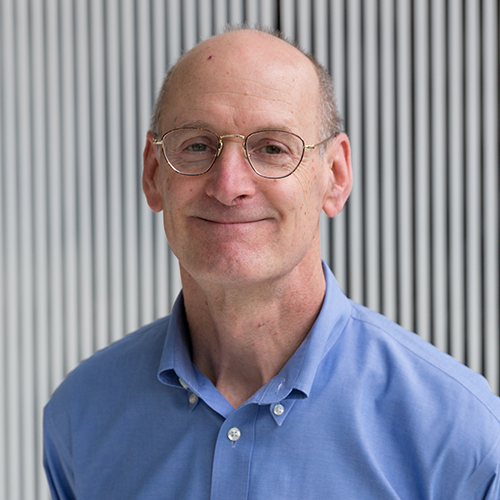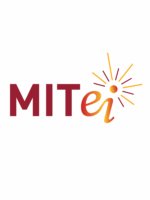Mission
The MIT Energy Initiative (MITEI), MIT’s hub for energy research, education, and outreach, is advancing zero- and low-carbon solutions to combat climate change and expand energy access. MITEI is a crucial rallying point for MIT researchers and educators who share our vision and commitment to dramatically reduce emissions through the development of novel technologies and delivery of science-based analysis. Together we are dedicated to decarbonizing global energy systems and building upon MIT’s long tradition of working collaboratively and transparently with industry, government, and civil society.
Collaboration
The MIT Energy Initiative leads MIT’s collaborative engagement with companies of all kinds from around the world to decarbonize our economy as rapidly as possible. Learning from one another, and working together, we seek to identify high impact opportunities, develop solutions, and bring them to global scale.
How we achieve our mission
RESEARCH: MITEI connects researchers from across MIT and facilitates collaborations with industry, nonprofits, and government to speed and scale commercialization of no- and low-carbon technologies from lab to market. MITEI and its members support hundreds of research projects, including innovative early-stage energy projects awarded through the MITEI Seed Fund Program.
Through MITEI’s Future Energy Systems Center, faculty, students, industry, and government advance R&D in key technology areas and energy subsector systems. Center researchers conduct integrated analysis of the energy system to transform power systems, transportation, industry, and the built environment.
MITEI also delivers comprehensive analyses for thought leaders, policy makers, and regulators, such as the “Future of” report series. The most recent, The Future of Energy Storage, was published in 2022.
EDUCATION: MITEI’s education role is central to its mission to decarbonize the world’s energy systems. MITEI provides a robust educational toolkit to thousands of MIT graduate and undergraduate students and global online learners who want to contribute to the energy transition.
Our programs—in the classroom, in the field, and online—allow students to study and conduct energy research in diverse fields, from energy science and social science to technology and engineering. Students hone their skills and collaborate with peers and professionals.
Opportunities include the Energy Studies Minor, the Energy Undergraduate Research Opportunities Program, short modules during the Independent Activities Period, an energy-focused first-year orientation program, the graduate Society of Energy Fellows, and a series of online energy classes open to the world.
OUTREACH: MITEI provides fact-based analysis of current energy topics to inform public policy, foster dialogue within the academic research community, and provide the public with context on vital issues. Our conferences and symposia give industry, government, and nonprofits data and insights to help drive energy system change. We continue that conversation online and off through news articles, our social channels, podcasts, and our experts’ presence in the media.
What We Do
Our history
MIT’s legacy of tackling societal challenges with science and technology stretches back to the first classes it offered in 1865. Some of MIT’s greatest innovations have been multidisciplinary—from collaborations across MIT departments and among industry, academia, and government. Throughout its history MIT has engaged with industry and government to help solve the world’s most vexing problems.
This history makes MIT and MITEI uniquely suited to the task of decarbonizing the energy sector and addressing the climate crisis. This multidisciplinary effort draws from many fields, including physics, chemistry, economics, engineering, social science, and public policy.
In 2006, MIT President Susan Hockfield—along with a diverse team of MIT faculty and senior staff—established the MIT Energy Initiative. MITEI’s founding director was Ernest J. Moniz, now the Cecil and Ida Green Professor of Physics and Engineering Systems emeritus and special advisor to the MIT president. Moniz also served as the U.S. Secretary of Energy. Subsequent directors have been:
- Robert C. Armstrong, the Chevron Professor of Chemical Engineering, 2013-2023
- Robert Stoner, interim director, 2023-2024
- William H. Green, the Hoyt C. Hottel Professor, 2024-Present
MITEI has mobilized thousands of students and experts, hundreds of millions of dollars in research, and key players from throughout the energy world around a core mission: deploying the research and educational strengths of MIT to decarbonize our economy and to address the world’s energy challenges.
More Information
Executive Leadership
Energy Council
The Energy Council helps shape MITEI’s research, education, and outreach directions.John Deutch
Randy Field
Bill Green
Bradford Hager
Chris Knittel
Caitlin Mueller
Elsa Olivetti
Christoph Reinhart
Carolyn Ruppel
Yogi Surendranath
Catherine Wolfram
Jinhua Zhao
Energy Education Task Force
MITEI’s Energy Education Task Force guides the development of energy education at MIT. The task force meets regularly throughout the academic year and includes faculty from all five schools at MIT, as well as graduate and undergraduate student representatives. MITEI’s education team members support the task force by implementing energy education programs.External Advisory Board
An External Advisory Board composed of industry, academic, nonprofit, and public sector leaders provides oversight to the Initiative. The views and guidance of the board greatly assist MITEI in maximizing its impact in helping to meet the world’s energy needs, reduce the environmental impacts of energy production and consumption, and inform public discourse on energy and the environment. The board meets annually each fall.Poppy Allonby
Chief Investment Officer, Church Commissioners
Sally M. Benson
Precourt Family Professor, Professor of Energy Science Engineering, Stanford University
Arunas A. Chesonis
Managing Partner, Safar Partners
Dominic T. Clausi
Vice President of Research, ExxonMobil
Rafael del Pino
Chairman, Grupo Ferrovial SA
John Deutch
Institute Professor and Professor of Chemistry Emeritus, MIT
Susan Eisenhower
Chairman Emeritus, Eisenhower Institute
Lorenzo Fiorillo
Director Technology, R&D & Digital, Eni S.p.A.
Selda Gunsel
President, Shell Global Solutions US
Susan Hockfield
President Emerita and Professor of Neuroscience, MIT
Alexander A. Karsner
Executive Chairman, Manifest Energy; Senior Strategist, X (the Moonshot Factory)
Roger Martella
EVP, Chief Corporate Officer, GE Vernova
Robert B. Millard
Chairman Emeritus, MIT Corporation
Ernest J. Moniz
Cecil and Ida Green Professor of Physics & Engineering Systems Emeritus, MIT
Sam Nunn
Co-Chair, Nuclear Threat Initiative
John S. Reed
Chairman Emeritus, MIT Corporation
Güler Sabanci
Chairman and Managing Director, Haci Omer Sabanci Holding AS
Philip R. Sharp
Retired President, Resources for the Future
Praveer Sinha
CEO and Managing Director, The Tata Power Company Limited
Ellen Williams (Chair)
Distinguished University Professor Emerita, University of Maryland
Daniel Yergin
Vice Chairman, S&P Global
Governing Board
The Governing Board provides input to MITEI leadership on overall direction and member activities and serves as the Program Committee for the Energy Research Seed Fund. The Board meets twice a year—in the spring to review seed fund progress and proposals and in the fall at the time of the annual MITEI Research Conference. Founding and Sustaining members each have a seat on the MITEI Governing Board with the directors of MITEI and the MIT Energy Council.Administration
| Alexandra Goodwin | Senior Administrative Assistant |
| Caleb Larson | Administrative Assistant |
| Gail Monahan | Administrative and Operations Coordinator |
Communications and Events
| Debi Kedian | Events Manager |
| Kelly McGinity | Events Planning Manager |
| Dominic Mathurin | Digital Projects Manager |
| Nancy Stauffer | Editor, Energy Futures |
| Kelley Travers | Communications Manager |
| Charlotte Whittle | Communications and Development Coordinator |
| Tom Witkowski | Director of Communications |
Development
| Heather Leet | Development Officer |
| Charlotte Whittle | Communications and Development Coordinator |
Education
| Antje Danielson | Director of Education |
| Rowan Elowe | Senior Academic Program Administrator |
| Aisling O’Grady | Education Program Administrator |
Finance
| Leia Amarra | Manager of Financial Operations |
| Jillian Auerbach | Financial Administrator |
| Jasmine Bellitti | Financial Assistant |
| Tiffany Greaves | Senior Financial Assistant |
| Edith Jaehne | Senior Fiscal Officer |
| Thanh Ngo | Financial Assistant |
HR
| Sarah Peterson | Human Resources Manager |
IT
| Patrick Connelly | Systems Administrator |
Member Services
| Lihong (Wendy) Duan | Program Director, MITEI Asia Pacific Program |
| Brian Hodder | Special Projects Manager |
| Aruna Joglekar | Assistant Director of Member Relations Programs and Engagement |
| J.J. Laukaitis | Director of Member Services |
Research
| Katelyn Ahern | Program Manager, Future Energy Systems Center |
| Morgan Andreae | Executive Director, Future Energy Systems Center and Eni-MIT Alliance |
| Deepjyoti Deka | Research Scientist |
| Randall Field | Director of Research |
| Howard Herzog | Senior Research Engineer |
| Ruaridh Macdonald | Energy Systems Research Lead |
| Pablo Duenas Martinez | Research Scientist |
MITEI is affiliated with faculty members in a number of MIT centers, departments, and laboratories pursuing interdisciplinary energy and environmental activities. MITEI supports the financial administration of certain projects and collaborates on research and education activities with these organizations. Affiliated faculty and research staff as well as international research associates contribute to empirical research on policy issues related to coal, oil, gas, and electricity markets; nuclear power; mobility; energy infrastructure; investment finance and risk management; and environmental and carbon constraints. CEEPR cooperates closely with associates in government and industry across the globe to enhance the relevance of its research. CEEPR produces working papers, policy briefs, and research input to larger, interdisciplinary studies; hosts two annual research workshops in Cambridge, Massachusetts; and hosts an international energy policy conference organized jointly with the Energy Policy Research Group at the University of Cambridge in the United Kingdom. CEEPR is also involved in a number of collaborative research projects. The E2e Project is a joint initiative founded by Professor Christopher Knittel, Professor Michael Greenstone (formerly at MIT, now at the University of Chicago), and Professor Catherine Wolfram of the University of California, Berkeley, to leverage cutting-edge scientific and economic insights on the causes of the persistent energy-efficiency gap. E2e focuses these talents on solving one of the most perplexing energy questions today and communicating those findings to policy makers and the public. E2e’s research generates rigorous and accurate evaluations of energy-efficiency technologies and programs using state-of-the-art empirical methodologies. The Roosevelt Project takes a multidisciplinary approach to examine the transitional challenges associated with progress toward a deeply decarbonized U.S. economy. The project aims to chart a path forward through the transition that minimizes worker and community dislocations and enables at-risk communities to sustain employment levels by taking advantage of the economic opportunities present for regional economic development. The first phase of the project involves an assessment of cross-cutting topics related to the transition. The second phase of the project involves developing regional action plans for individual case studies, working with local partners on the ground in specific transition contexts. The project was initiated by former U.S. Secretary of Energy Ernest J. Moniz and engages a breadth of MIT and Harvard faculty and researchers across academic domains including economics, engineering, sociology, urban studies and planning, and political science. To achieve its mission—advancing a sustainable, prosperous world through scientific analysis of the complex interactions among co-evolving, interconnected global systems—the Joint Program: Building on the twin pillars of science and policy, the Joint Program was founded in 1991 as a joint effort of two distinct groups: the MIT Center for Global Change Science and the MIT Center for Energy and Environmental Policy Research. MITEI staff and faculty affiliates collaborate with the Office of Sustainability through initiatives such as the Campus Sustainability Task Force, living lab projects, and the MIT Climate Action Advisory Committee.
Center for Energy and Environmental Policy Research
Climate and Sustainability Consortium
Climate CoLab
Energy Club
Environmental Solutions Initiative
Global Commission to End Energy Poverty
Joint Program on the Science and Policy of Global Change
MultiScale Material Science for Energy and Environment
Office of Sustainability
Sustainability Initiative
Tata Center for Technology and Design
U.S. C3E Initiative
MIT Human Resources maintains a list of open positions at the Energy Initiative, and is the primary contact for all applications and questions.
The Massachusetts Institute of Technology is committed to the principle of equal opportunity in education and employment. Read the full nondiscrimination policy.
I’m a journalist. How can I get in touch with an MIT energy researcher?
Contact MITEI Communications.
How can I learn about becoming a member?
Contact MITEI Member Services.
How can I learn about energy education?
Contact MITEI Education.
Where can I view recordings of MITEI events, seminars and other talks online?
If a MITEI event, seminar, or other talk is being recorded, you can find the video by visiting the MITEI YouTube channel. Please note that not all MITEI events, seminars and talks are recorded, but that the YouTube channel is the most up-to-date source of MITEI video recordings.
I’m a non-MIT student/researcher who would like to work with MIT faculty on energy issues. Are there opportunities available for internships and jobs?
MIT faculty work on a very wide range of energy research topics, and the best way to figure out whether there could be opportunities is to research specific departments and faculty members, and inquire through those channels. You can learn more about faculty members affiliated with MITEI here. MIT Human Resources maintains a list of open positions at the Energy Initiative, and is the primary contact for all applications and questions. Please note, MITEI does not offer internships to international students.
I’m a researcher at another academic institution. How can I get in contact with MITEI about an energy-related topic?
If you would like to reach MITEI regarding an energy-related topic such as an invention or research project, please send us more information about your proposal.
I’m an inventor. How do I get in touch with someone at MITEI about my energy-related invention?
We receive many inquiries about inventions, and unfortunately MITEI researchers are unable to review these proposals.
Contact
Have a question not answered here?













